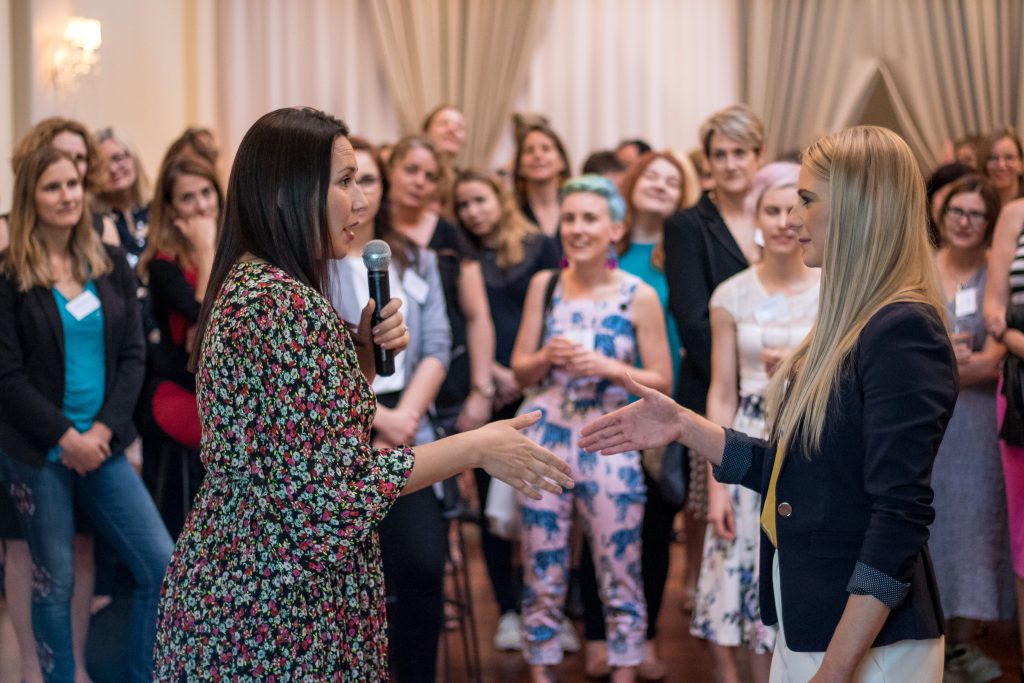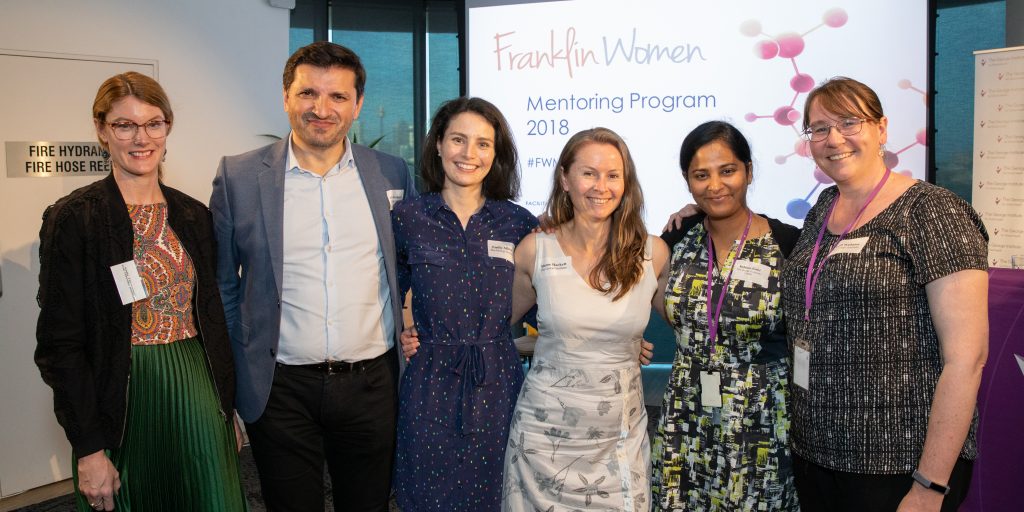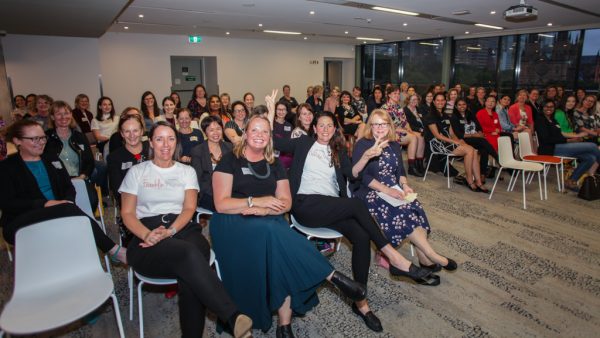The FW Effect: creating a community of excellence

Connection. Confidence. Collaboration. Inspiration. These are words people use to describe what they call the FW Effect: the benefits of being part of the Franklin Women community.
A social enterprise founded by research scientist Dr Melina Georgousakis, Franklin Women connects more than 17,000 people and 19 partner organisations – including organisations within NSW Health – to create a community focused on supporting women to thrive in the health and medical research sector.
Back in 2014, founder Melina was working as a medical researcher – and thinking about buying a house, starting a family and her next career move – when she was struck by the idea for Franklin Women.
“A lot of my female colleagues were talking about leaving,” she says. “They had all this technical expertise and passion to make a difference to health, but were not sure of the opportunities for them, so they were going to leave the sector altogether. For the first time I realised my gender was impacting my career path.”
Melina decided something had to change. “I basically created the thing that I felt I needed,” she says.
More than 100 women attended the first Franklin Women event in 2014, and from there the community has flourished, creating tangible change and opportunities for women – and for the medical science sector more broadly.
An investment by NSW Health
The key work of Franklin Women is supporting women in the health and medical research ecosystem, “to retain them, so they can continue to contribute to the sector, and also to invest in them and the environments they work in, so they can bring their whole selves and contribute to their full potential,” Melina says.
After many years as a primarily volunteer-run organisation, Franklin Women has received a two-year grant from NSW Health to transition to a sustainable social enterprise.
“This is game-changing for us,” Melina says. “Supporting women and other under-represented groups in our sector is essential. System- and culture-shifting is happening, but it takes time. This investment gives us the resources to develop and implement a sustainable business model, so we can stand on our own two feet. In the long term, I want a complete team who can effectively deliver what we do and still have capacity to innovate and grow and have continued impact.”
Franklin Women is already making a difference. As well as running networking events that provide professional learning opportunities in career transitions, entrepreneurial mindset and having courageous conversations, the community offers carer’s scholarships for members who juggle unpaid caring roles and work. There’s also a mentorship program with a 450-strong alumni that focuses on inclusive leadership training for both mentees and mentors.
“We bring women together and magic happens,” Melina says. “People collaborate, they share stories, give each other jobs, nominate each other for awards, write Wikipedia pages for each other. There’s this sense of support, of wanting to open doors and lift each other up.”

Great people lead to great science
NSW Health’s investment in Franklin Women benefits the entire health and medical research ecosystem. “Thanks to this community, people are feeling fulfilled, they’re getting professional development, they have confidence, and they have the networks to do the best possible science that they can.”
The Franklin Women community supports women to progress further in the health and medical research sector, contributing to NSW Health’s drive for gender equality in senior leadership, and the National Health and Medical Research Council’s efforts to achieve a gender-equal health and medical research workforce.
“It’s not just about supporting the women, it’s also about changing the environments they work within,” Melina says. “Initiatives like our Mentoring Program and also alliance of Partner organisations actively work to increase understanding about the value of creating diverse and inclusive workplaces, and the practical ways individuals and organisations can do this.”
Ultimately, supporting women to excel means excellent science, she says.
“Franklin Women’s achievements are coming from that shared identity of being women in the sector, but at the end of the day, it’s about having diverse people with diverse perspectives bringing their ideas together to produce the best possible science.”
Impact from everyday actions
Melina’s advice for those who want to improve inclusivity in the workplace is to “act within your sphere of influence. It can be something as simple as organising a conference and looking at the diversity in your speakers and chairs. It’s through our everyday decisions and actions and conversations that we can have the biggest impact.”
Note from the Franklin Women website: ‘Woman’ is defined as anyone who identifies as a woman, including cisgender (gender identity corresponds with sex assigned at birth) and transgender (gender identity does not correspond with sex assigned at birth) women.

Updated 2 years ago